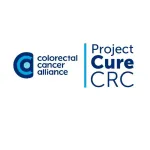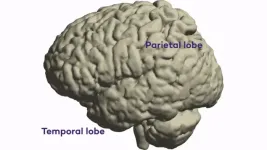(Press-News.org) New postpartum depression research from the University of Virginia School of Medicine and Weill Cornell Medicine could lead to a blood test to identify women at risk and possibly even to a preventive treatment.
The research suggests that pregnant women may have characteristic levels of certain molecules in their blood that can warn that they are at risk of developing postpartum depression (PPD). These molecules, called neuroactive steroids, are derived from progesterone, a hormone that plays critical roles in pregnancy and menstruation.
Measuring those molecules via a simple blood test could let doctors get women treatment for PPD sooner – possibly even before symptoms appear, the researchers say. “Studying postpartum depression gives us a way to identify biological changes that occur before someone becomes depressed because the timing of postpartum depression is predictable,” said researcher Jennifer Payne, MD, an expert in reproductive psychiatry at UVA Health and the University of Virginia School of Medicine.
Understanding Postpartum Depression
Postpartum depression affects 10% to 15% of new moms. While many new mothers suffer mild, temporary “baby blues,” PPD is a long-term condition that can leave moms with persistent sadness, stifling anxiety, a stubborn sense of hopelessness and the feeling that they can’t bond with their baby. This can take a terrible toll on both mother and child – a toll that can last for years.
“Postpartum is the only time in people’s lifespans when we know there is a biological trigger which guarantees that a certain percentage of people will become ill,” said Weill Cornell’s Lauren Osborne, MD, who co-led the study with Payne. “If we can untangle this biology and find predictors for it, not only will we be helping women, but it may give us a step up in trying to find predictors for other psychiatric illnesses also.”
It's unclear why some women develop postpartum depression, but the new findings suggest that an imbalance in the body’s metabolism of progesterone may be a factor.
About the Study
To better understand the role of progesterone, the researchers focused on the hormone and on its “metabolic pathway” in the body. The scientists measured levels of neuroactive steroids derived from progesterone in the blood of 136 women during their second and third trimesters. Of these, 33 went on to develop postpartum depression after giving birth.
Two neuroactive steroids seem to affect the risk of developing PPD – pregnanolone and isoallopregnanolone. Pregnanolone acts on a particular cellular receptor to reduce stress. Isoallopregnanolone, on the other hand, acts on the same receptor to increase stress.
In the third trimester, women who went on to develop PPD had a lower pregnanolone/progesterone ratio and a higher isoallopregnanolone/pregnanolone ratio compared with those who did not, the researchers found. Elevated progesterone levels in late pregnancy were also associated with a higher risk of PPD.
Next Steps
The researchers plan to attempt to replicate their results in a larger, more diverse group of women in hopes of developing a clinical test to predict the risk of PPD. Further, they say their work could lead to a preventive treatment – possibly one of two prescription drugs, brexanolone and zuranolone, already available to treat PPD.
“We don’t know if these drugs would work as a preventive measure for people who are at risk of developing postpartum depression, but based on our findings, they have the potential to prevent [its] development,” Osborne said.
Findings Published
The researchers have published their findings in the scientific journal Neuropsychopharmacology. The research team consisted of Osborne, Semra Etyemez, Graziano Pinna, Rebecca Alemani, Lindsay R. Standeven, Xin-Qun Wang and Payne. A list of the authors’ disclosures is included in the paper.
The study was supported by the National Institutes of Health, grants R01MH104262 and R01MH112704, and by generous gifts from Ms. Vanessa Speer, Dr. John Davis, and Mr. H. Furlong Baldwin.
To keep up with the latest medical research news from UVA, subscribe to the Making of Medicine blog.
END
Postpartum depression discovery opens door to blood test, earlier treatment
2025-02-13
ELSE PRESS RELEASES FROM THIS DATE:
Project Cure CRC ignites innovation in 2025 with $10.5 million in research, K-SPY debut & renewed RFP
2025-02-13
The leading nonprofit Colorectal Cancer Alliance (Alliance) is making bold strides in its mission to put an end to the disease. Its Project Cure CRC research initiative awarded new grants, convened top scientists to spark breakthrough advancements at its Cure CRC Summit, and unveiled K-SPY, a groundbreaking multi-center platform trial for high-risk colorectal cancer cases. Since its launch, Project Cure CRC has received 275 proposals, of which 22 have been approved totaling $10.5 million in awards. The latest awards reflect $2.8 million ...
Damon Runyon Cancer Research Foundation and St. Jude Children’s Research Hospital invest $1.8 million in childhood cancer research
2025-02-13
New York, New York, and Memphis, Tennessee, February 13, 2025
The Damon Runyon Cancer Research Foundation and St. Jude Children’s Research Hospital have announced their newest class of pediatric cancer research fellows, each of whom will receive funding for four years ($300,000 total) to support an innovative research project with the potential to significantly impact the diagnosis or treatment of one or more pediatric cancers.
Launched in 2024, the Damon Runyon-St. Jude Pediatric Cancer Research Fellowship aims to address a funding gap that drives top talent to seek more prevalent opportunities in adult cancer research or the pharmaceutical sector. Fellows are selected by a distinguished ...
New ACS study finds menthol flavored cigarette smoking increases mortality risk vs. non-menthol cigarettes
2025-02-13
In a large, nationwide study led by the American Cancer Society (ACS), researchers found mortality risks for smoking menthol cigarettes were higher than non-menthol cigarettes for death from any cause and cardiovascular diseases, especially heart diseases. Higher risks were evident in individuals who had quit smoking and at high smoking intensities. Black participants currently smoking menthol brands had high increases for some heart diseases with an 88% elevated mortality risk compared to non-menthol cigarettes. ...
Discussing barriers, concerns key for getting older adults vaccinated
2025-02-13
A clear endorsement from their healthcare provider and being supplied information about recommended vaccines before their clinic visit spurred more older Americans to get vaccinated, a new University of Virginia School of Medicine study found.
Because immune systems age like the rest of the body, older adults are at higher risk for poor outcomes from infections. But only 15% of Americans ages 50 and older and 25% of Americans ages 65 and older are up to date on all recommended vaccines, including flu, RSV, tetanus and pneumococcal disease.
In the study, six primary care clinics across America piloted a new approach to boosting vaccination rates. This included ...
Regular access to therapy dogs boosts first-year students’ mental health
2025-02-13
PULLMAN, Wash. — College students who spent a little bit of free time each week interacting with therapy dogs on campus during their first semester experienced fewer signs of stress and depression than those who did not.
That’s according to the PAWs4US study, a new paper published in Pets that examined how regular, long-term access to an animal-assisted drop-in program at Washington State University influenced first-year students’ mental health.
The study found that students who engaged with therapy dogs in repeated, unstructured sessions over several months not only ...
The complicated question of how we determine who has an accent
2025-02-13
COLUMBUS, Ohio – How do you tell if someone has a particular accent? It might seem obvious: You hear someone pronounce words in a way that is different from “normal” and connect it to other people from a specific place.
But a new study suggests that might not be the case.
“People probably don’t learn who has an accent from hearing someone talk and thinking, ‘huh, they sound funny’ – even though sometimes it feels like that’s how we do it,” said Kathryn Campbell-Kibler, author of the study and associate professor of linguistics at The Ohio State University.
Accents may be ...
NITech researchers shed light on the mechanisms of bacterial flagellar motors
2025-02-13
When speaking of motors, most people think of those powering vehicles and human machinery. However, biological motors have existed for millions of years in microorganisms. Among these, many bacterial species have tail-like structures—called flagella—that spin around to propel themselves in fluids. These movements employ protein complexes known as the “flagellar motor.”
This flagellar motor consists of two main components: the rotor and the stators. The rotor is a large rotating structure, anchored to the cell membrane, that turns the flagellum. On the other hand, the stators are smaller ...
Study maps new brain regions behind intended speech
2025-02-13
Broca’s aphasia is caused by damage to the frontal lobe, leaves patients unable to say what they intend to say
First study to identify regions outside the frontal lobe that encode the intent to speak
Critical for technology to avoid decoding a patient’s thoughts that are not intended to be spoken aloud
CHICAGO --- Imagine seeing a furry, four-legged animal that meows. Mentally, you know what it is, but the word “cat” is stuck on the tip of your tongue.
This phenomenon, known as Broca’s aphasia or expressive aphasia, is a language disorder that affects a person’s ability to speak or ...
Next-gen Alzheimer’s drugs extend independent living by months
2025-02-13
In the past two years, the Food and Drug Administration has approved two novel Alzheimer’s therapies, based on data from clinical trials showing that both drugs slowed the progression of the disease. But while the approvals of lecanemab and donanemab, both antibody therapies that clear plaque-causing amyloid proteins from the brain, were greeted with enthusiasm by some Alzheimer’s researchers, the response of patients has been muted. According to physicians who care for people with Alzheimer’s, many patients found it difficult to understand what the clinical trials results — presented as “percent decrease in ...
Jumping workouts could help astronauts on the moon and Mars, study in mice suggests
2025-02-13
Jumping workouts could help astronauts prevent the type of cartilage damage they are likely to endure during lengthy missions to Mars and the Moon, a new Johns Hopkins University study suggests.
The research adds to ongoing efforts by space agencies to protect astronauts against deconditioning/getting out of shape due to low gravity, a crucial aspect of their ability to perform spacewalks, handle equipment and repairs, and carry out other physically demanding tasks.
The study, which shows knee cartilage in mice grew healthier following jumping exercises, appears ...







